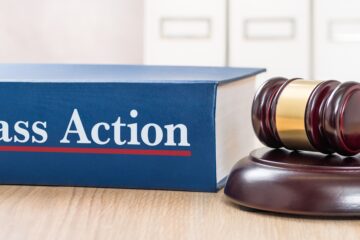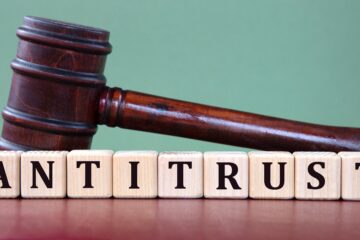Bloomberg Law
The US Court of Appeals for the Second Circuit held that Do No Harm, an advocacy group of health-care professionals, students, and policymakers, couldn’t sue Pfizer because it didn’t identify by name at least one member who allegedly was harmed by the company’s fellowship.
Since the US Supreme Court’s decision curtailing the use of race as a factor in college admissions, organizations increasingly have filed suits against corporate diversity, equity, and inclusion programs on behalf of anonymous members on the ground that such policies are racially discriminatory.
The Second Circuit’s ruling, however, bolsters companies’ defenses to lawsuits by partisan groups that rely on anonymous members to to establish standing to sue, employment and constitutional law scholars told Bloomberg Law.
“I imagine that it could discourage and interfere with some lawsuits” within the Second Circuit’s jurisdiction and make it more difficult for organizations to keep their cases from being dismissed before they even reach arguments on the merits, said Andrew Hessick, a constitutional law professor at the University of North Carolina School of Law.
Associational standing, which allows organizations to advocate for the shared interests of their members, “was developed to protect individual members so they don’t have to proceed as plaintiffs themselves,” Hessick said. So requiring that organizations identify individual members “sort of defeats part of the reason why associational standing was developed in the first place.”
“Much of this type of litigation” concerning social matters “over the last couple of years has involved organizations suing on behalf of individuals who normally would’ve sued on their own,” said Ishan Bhabha, co-chair of Jenner & Block LLP’s DEI Protection Task Force.
“And the key issue is they sometimes don’t identify specific individuals. They just say, ‘We have members,’” Bhabha said. “When you do that, it becomes a lot less costly for an individual because when an individual brings a lawsuit, they’ve got to put their name and be willing to identify themselves directly. That is definitely something that makes people nervous, frankly.”
Hessick said he understands “why courts would want more information” that shows at least one member suffered an actual injury tied to the program the group is challenging. “Organizations will be more strategic in finding people who are willing to have their names disclosed.”
Early Impact
The American Alliance for Equal Rights—a nonprofit founded by conservative activist Edward Blum—has been one of the main organizations challenging workplace diversity programs, including those at prominent law firms Morrison & Foerster LLP, Perkins Coie LLP, and Winston & Strawn LLP. Those suits were later dropped after the firms revised the programs’ criteria.
None of the organization’s cases—including one that’s still pending before the Eleventh Circuit—identified a member the programs allegedly harmed.
The Eleventh Circuit is considering whether the alliance can sue on behalf of three unnamed Asian and White women who say that Atlanta-based venture capital firm Fearless Fund Management LLC’s grant and mentorship program for Black female entrepreneurs is illegal under Section 1981 of the Civil Rights Act of 1866. The Civil War-era statute, which guarantees equal rights to Black Americans, specifically bans racial bias in contracting.
On the same day of the Second Circuit’s Pfizer decision, Fearless Fund told the Eleventh Circuit the ruling supports its position that AAER lacks standing to challenge the program.
Like Do No Harm, the alliance submitted “‘virtually identical declarations’ from anonymous members that were ‘vague and conclusory’ and did not substantiate ‘a concrete readiness to apply’ to the challenged program,” the brief said. “Whether cast in terms of the Alliance’s failure to identify its affected members or its failure to corroborate boilerplate statements that the anonymous members actually are ready to apply for a charitable grant, the lesson is the same: The Alliance lacks Article III standing.”
AAER fired back in a response brief that the “unpersuasive” ruling is “an outlier,” and the Tenth, Ninth, Fourth, and D.C. circuits, allow anonymity before discovery begins.
“Pseudonyms don’t suggest the member lacks ‘sincerity,’” the group said. “They suggest the member values privacy and fears retaliation. And if concerns about sincerity exist, submitting a stranger’s first and last name to the court, ‘in camera,’ does nothing to resolve them.”
Limited Approach
Courts allow a party to proceed under a pseudonym or as an anonymous person in some instances, “but that’s somewhat constrained,” said Marcia L. McCormick, an employment discrimination law professor at Saint Louis University School of Law. The Supreme Court hasn’t fully fleshed out how lower courts should assess the issue, she said.
“There’s a presumption that all of the information about a case ought to be public,” so courts generally consider whether a party “might suffer some sort of harm” like retaliation if their identity gets disclosed, McCormick said.
But in a case like Do No Harm’s, “the bottom line here in part is that courts may be hesitant to allow members of an association to not be actually named due to concerns about whether or not those members are real people,” she said.
For instance, the district court found that the declarations Do No Harm submitted with the group’s complaint weren’t sworn under oath to substantiate the members’ alleged injury, McCormick said.
Whether the Pfizer ruling will be persuasive outside of the Second Circuit’s jurisdiction—which covers Connecticut, New York, and Vermont—remains to be seen, legal scholars said.
But it does create a circuit split that requires further clarity from the Supreme Court over the use of anonymous members to establish standing, they said.
The Supreme Court’s 2009 Summers v. Earth Island Institute decision held that plaintiffs claiming associational standing must “identify members who have suffered the requisite harm.” Lower courts are divided over whether that means an actual person should be identified or that an organization must give their real name, McCormick said.
Standing is a threshold issue that must be resolved early in a case, so the Supreme Court’s ultimate determination on this issue “is going reverberate in all sorts of cases when organizations bring suits,” Bhabha said."
To read the rest of the article click here.


